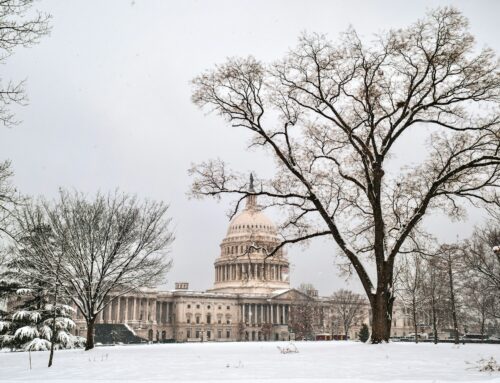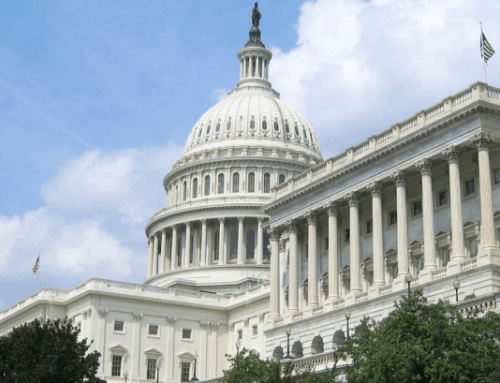TCS joined an Open Letter commending the Administration for seeking congressional approval to make apportionment changes via the recissions mechanism. While the diverse groups differ on the appropriateness of the specific rescissions the president is seeking, the organizations jointly affirm this is the proper means by which the Executive branch can request Congress to amend appropriations and in so doing uphold Congress’s power of the purse.
On behalf of the undersigned organizations, we commend the Administration for seeking congressional approval to make apportionment changes via the rescissions mechanism. This tool was made available to presidents as a means to expeditiously request cancellation of budget authority under the Congressional Budget and Impoundment Control Act of 1974. While we differ as to the underlying substance of the specific rescissions enumerated in the May 28 message to Congress, we nonetheless agree that this is the proper means by which the Executive branch can request Congress to amend appropriations and in so doing uphold the essential role of the First Branch.
The authority of the federal legislature over the collection and disbursement of public funds has been a keystone of the American experiment from its earliest days. Members of the 1787 Constitutional Convention had many serious issues and divisions with which to contend, but on Congress’ “power of the purse,” they were repeatedly unanimous. During the course of the convention, Elbridge Gerry of Massachusetts, who was a moderating voice at the convention and champion of the Bill of Rights, declared, “[I]t was a maxim that the people ought to hold the purse-strings.”
Though some details of the provision changed over the course of negotiations, again and again the Founders affirmed the principle of what became Article 1, Section 9, Clause 7 of the United States Constitution, giving exclusive jurisdiction over monies drawn from the Treasury to Congress.
At the time, this was considered to be a strong selling point for the proposed constitution and its unique governing framework. James Madison appealed for ratification in Federalist Paper No. 58, writing, “This power over the purse may, in fact, be regarded as the most complete and effectual weapon with which any constitution can arm the immediate representatives of the people, for obtaining a redress of every grievance and for carrying into effect every just and salutary measure.”
Speaking at the 1788 New York ratifying convention, Alexander Hamilton argued that this division is the foundation of liberty and a hedge against tyranny, “where the purse is lodged in one branch, and the sword in another, there can be no danger.”
The intrinsic structure of the American enterprise is rooted in the separation of powers. It is not a mere political philosophy or hypothesis. Its foundation rests on the institution of the power of the purse. Attempts to weaken this clearly delineated authority erodes and destabilizes the very heart of our republic.
To that end, we again affirm the White House decision to obtain approval from Congress to administer funding changes. When further changes are considered, we urge the Office of Management and Budget to avoid methods that side-step the First Branch, such as the so-called “pocket rescission,” and thereby undermine the role of Congress. We likewise recognize those in Congress who have consistently insisted on asserting their own authority over public finance decisions. Indeed, maintaining the constitution order requires, as Madison wrote in Federalist No. 51, members of each branch of government have the means and motivation to resist encroachment from the others. Our organizations look forward to working alongside both the executive and legislative branches to preserve the power of the purse our forebears rightly entrusted to the representatives of the people.
Sincerely,
R Street Institute
American Governance Institute
National Taxpayers Union
Project on Government Oversight
Taxpayers for Common Sense










